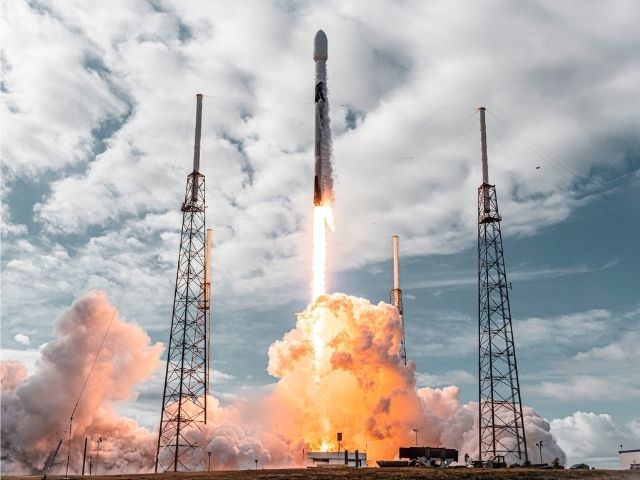For the first time, ISRO will utilize the Falcon-9 heavy lift launcher, with the launch anticipated to occur from Florida. ISRO, India ‘s space agency, will deploy its advanced communications satellite GSAT-20 using SpaceX’s Falcon-9 heavy lift launcher for the first time. The decision underscores ISRO’s current lack of a sufficiently powerful indigenous rocket for launching large communication satellites. ISRO-Chairman S Somanath stated that the unavailability of an alternative rocket within the required timeframe necessitated the deal with SpaceX.
This marks a significant departure from India’s traditional reliance on the Arianespace consortium, led by France, for launching heavy satellites. India’s own rockets lack the capacity to carry very heavy satellites to geostationary orbits beyond the 4-ton class. The GSAT-20 satellite, weighing 4700 kg, offers Ka-Ka band high throughput (HTS) capacity with 32 beams covering Pan-India, including remote regions like Andaman & Nicobar, Jammu & Kashmir, and Lakshadweep islands. The satellite is tailored to meet the communication needs of unconnected areas.
Also Read : E-commerce firms breathe a sigh of relief as truck drivers call off strike
New-Space-India-Limited(NSIL),has signed a contract with SpaceX
The commercial arm of ISRO,New-Space-India-Limited(NSIL),has signed a contract with SpaceX for a potential launch in the second-quarter of the year. This move aligns with the ongoing reforms in the Indian space sector. While Arianespace has been a longstanding partner, NSIL emphasizes the importance of commercial viability and readiness in its decisions.
GSAT-20, renamed GSAT-N2, competes with OneWeb, Starlink, and Reliance Jiospace to deliver broadband internet access to remote regions. India’s current heaviest rocket, the Launch Vehicle Mark 3, can carry satellites up to 4000 kilograms to geostationary orbits. However, S Somanath highlights the urgent need for a Next Generation Launch Vehicle (NGLV) capable of lifting up to 10,000 kilograms, currently in development at the Vikram Sarabhai Space Center. This endeavor is crucial to enhancing India’s launch capabilities to meet future needs while remaining cost-competitive.
Also Read : What Chief Justice Said In Adani-Hindenburg Case











More Stories
Box Office Collection: वीकेंड खत्म होते ही ‘भूल चूक माफ’ की कमाई में भारी गिरावट, जानें बाकी फिल्मों का भी हाल
Kangana Ranaut hails Clint Eastwood for working at 95, calls him ‘yogi’: ‘People like him make artists look so good’
Norway Chess: नॉर्वे शतरंज टूर्नामेंट में विश्व चैंपियन गुकेश ने कार्लसन को हराया, पिछली हार का भी लिया बदला